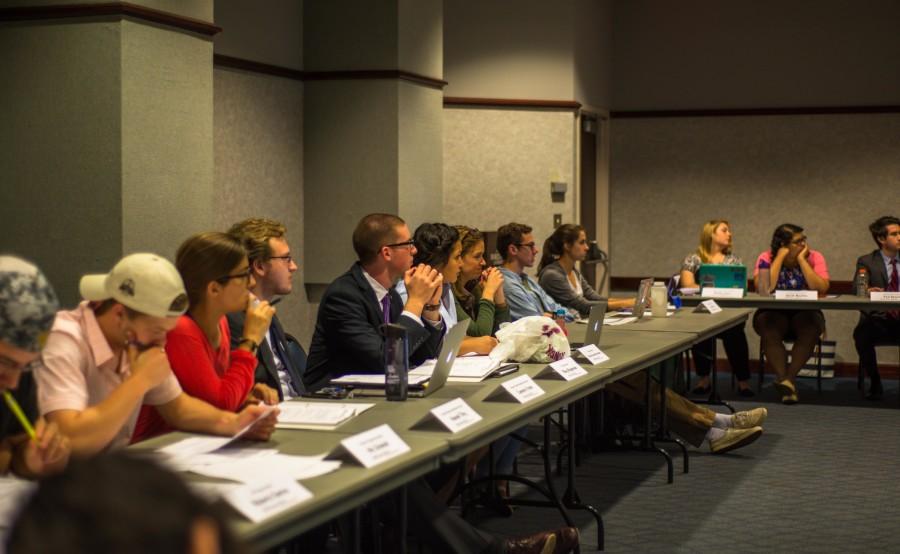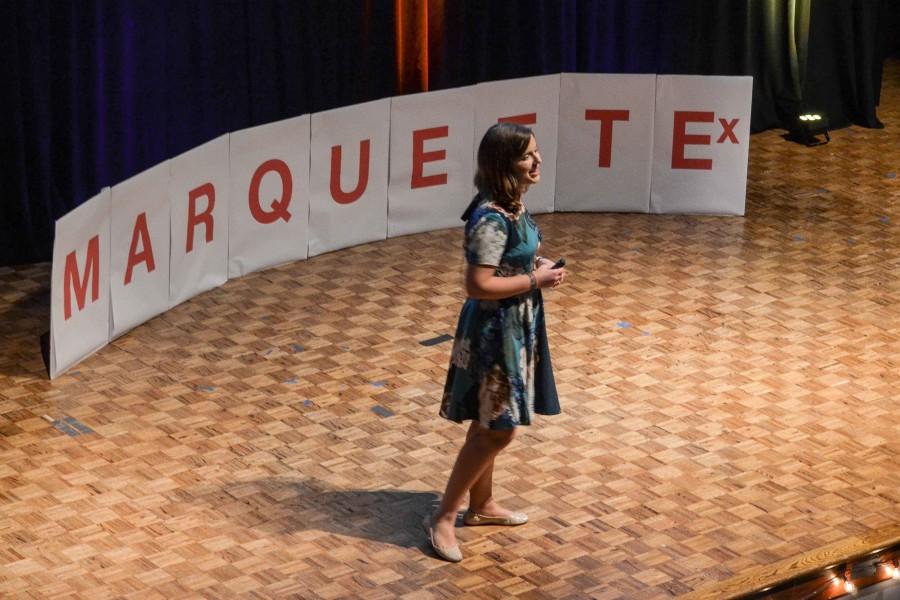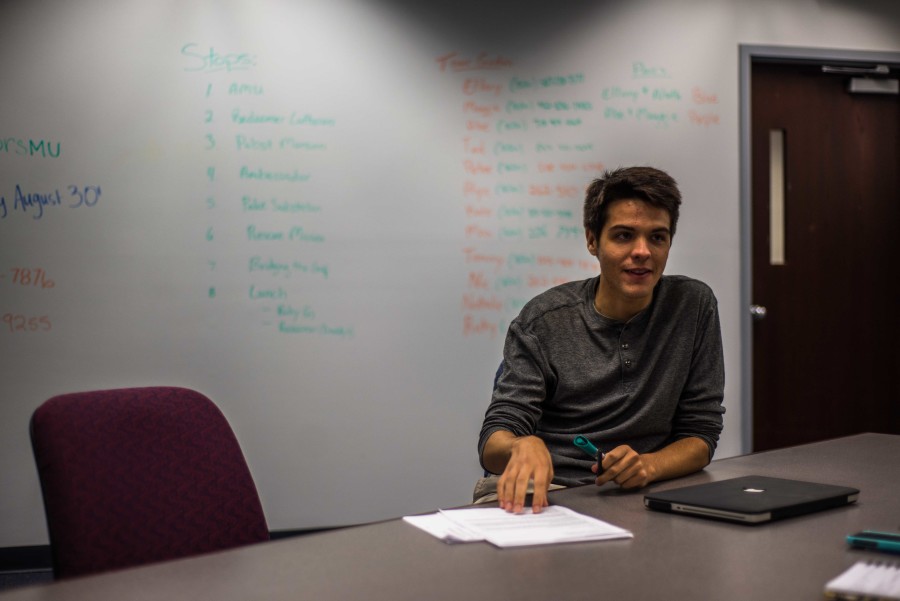Two staff members from the Social Innovation Initiative at Marquette announced their goal to impact the lives of one billion people by 2020 at the Marquette Student Government Senate meeting Monday.
Marquette is collaborating with 15 other universities to accomplish this goal. One program that helps Marquette achieve this objective is the Boost Program, which began at Santa Clara University’s Global Social Benefit Institute. It is a free three-day mentorship program for social entrepreneurs in the Milwaukee area.
“We spend a lot of time on financials and… growth plans,” said Kelsey Otero, SII coordinator. “The hope is that at the end of the day, these 10 entrepreneurs that went through the program that are in the Milwaukee community will have a stronger support network… and business model as to what they’re doing so they can continue to grow and… become financially sustainable.”
Marquette is the first university outside of SCU to offer the program as part of its collaborative goal. The program will be offered again in the spring.
The Boost Program is also one of the two successes Marquette will share during the Ashoka U renewal process next semester, including the Good Money Challenge on Nov. 13. Marquette became an Ashoka U campus in 2010 and was the first Jesuit university to join the network.
“The (Boost) Program is set up to be a catalyst for universities to build up their social innovation and social entrepreneurship programs on campus,” Otero said.
Ashoka U is renewing four universities as a formal institutional commitment starting at the end of February during a launch event and annual conference at Tulane University. Following the launch event, there will be a site visit from someone at another of the four institutions, a staff member from Ashoka U and an additional external representative. The renewal process lasts until June.
When Marquette became an Ashoka U campus, the student organization, ChangeMakers@MU, was established to promote social entrepreneurship for students.
“The Ashoka U concept is taking the university as a whole and saying to what extent a university can be a ChangeMaker campus,” said the Rev. Nicholas Santos, co-director of SII at Marquette.
Another opportunity for students to become social entrepreneurs is the Strategic Innovation Fund. This fund provides seed money to students, faculty and staff to explore entrepreneurial ventures. Applications are due on Nov. 24 at 5 p.m.
Courtney Guc, a junior in the College of Business Administration, is also a member on the committee of business and administration that is writing a proposal for the fund.
“We are looking to find a sustainable way or relationship with Growing Power or a Marquette office to make sure the delivery of fresh produce can supplement the lack of a grocery store on campus,” Guc said in an email.
Growing Power is a national non-profit that helps to provide equal access to healthy and affordable food.
“They have delivered baskets of fresh fruits and vegetables to campus before, but the cost of delivery is a problem and picking up baskets from the Silver Springs location is not feasible or timely without a reliable vehicle,” Guc said.
During the presentation, Estefania Elizondo, a senior in the College of Communication, suggested a social innovation class be part of the core curriculum to promote social innovation and to fulfill a growing student interest. Santos said now is the time to petition a new core class since the curriculum is under review.
“You told me numerous times the Jesuits were some of the first entrepreneurs and social innovators in the way they spread the Jesuit tradition,” Otero said to Santos. “I think that’s a good distinction that Marquette brings that a lot of universities don’t have at their core to begin with.”
Santos said the large Jesuit network is important during the renewal process and achieving its goal with SCU and other universities.
“We think it’s achievable given the Jesuit network,” Santos said. “We really think we can if we intentionally commit to it.”





